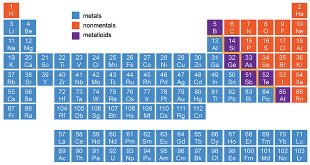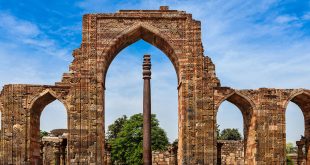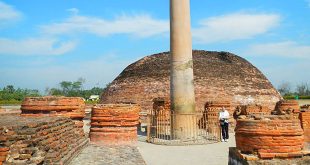Question: Give an example of diversity in India. Answer: The people of India, living in different parts, speak different languages. Question: Give an example of unity in diversity among Indians. Answer: All Indians share the same national pride of having India as their motherland. Question: Why did Samir Do, the paper …
Read More »NCERT 8th Class (CBSE) Science: Metals And Non-Metals
Question: Differentiate between metal and non metals on the basis of their physical properties? Answer: The difference is as follows: Question: What is the difference between physical state of metals and non-metals at room temperature? Answer: The physical state of metal and non-metal at room temperature: Metal are solid at room …
Read More »NCERT 6th Class (CBSE) Social Science: Flowering of Culture and Science – Quiz
NCERT 6th Class (CBSE) Social Science: Flowering of Culture and Science – Quiz 14 Multiple Choice Questions related to NCERT 6th Class (CBSE) Social Science: Flowering of Culture and Science – Quiz: The word Stupa means a mound. It is a Buddhist religious building. Amaravati was a place where a …
Read More »NCERT 6th Class (CBSE) Social Science: Flowering of Culture and Science
Question: When was the Iron Pillar made? Answer: It was made about 1500 years ago. Question: Mention the most striking feature of the Iron Pillar. Answer: The Pillar has not rusted in all these years. Question: What do you mean by the word ‘Stupa’? Answer: The word Stupa means a …
Read More »NCERT 6th Class (CBSE) Social Science: India from the 4th Century CE to the 7th Century CE – Quiz
NCERT 6th Class (CBSE) Social Science: India from the 4th Century CE to the 7th Century CE – Quiz 18 Multiple Choice Questions related to NCERT 6th Class (CBSE) Social Science: India from the 4th Century CE to the 7th Century CE – Quiz: We know about him from a …
Read More »NCERT 6th Class (CBSE) Social Science: India from the 4th Century CE to the 7th Century CE
Question: Who was Samudragupta? Answer: He was a famous ruler of the Gupta dynasty. Question: How do we know about him? Answer: We know about him from a long inscription, which is a poem in Sanskrit composed by his court poet, Harishena. Question: Where is this poem inscribed? Answer: This poem …
Read More »NCERT 8th Class (CBSE) Science: Force and Pressure
Question: Define force. Answer: Any push or pull is called force. Question: When does a body move? Answer: A body moves when force is applied. Question: What is the first requirement to put force into play? Answer: Interaction between two objects. Question: Give any example of push. Answer: Pushing a table …
Read More »NCERT 8th Class (CBSE) Science: Force and Pressure – Quiz
NCERT 8th Class (CBSE) Science: Force and Pressure – Quiz 40 Multiple Choice Questions related to NCERT 8th Class (CBSE) Science: Force and Pressure – Quiz: Every push or pull is called force. Force comes into action when an object interacts with other object. Force has magnitude and direction.
Read More »रेडियो पर विद्यार्थियों और बच्चों के लिए हिंदी निबंध
मनुष्य सदा से अपना मनोरंजन करता आया है। मन की शान्ति के लिए वह नई-नई खोज करता गया। नए-नए आविष्कार करने में वैज्ञानिकों को होड़ लग गई। मानव ने प्रकृति को अपने हाथ का खिलौना बना लिया। आज घर में बिजली से बनी प्रत्येक वस्तु वैज्ञानिक आविष्कार का चमत्कार है। रेडियो …
Read More »चलचित्र (सिनेमा) पर विद्यार्थियों और बच्चों के लिए निबंध
आधुनिक युग में जीवन की व्यस्तता अधिक है। यह व्यस्तता मानव के तन को थका देती है। तन की थकान से मन भी थक जाता है क्योंकि तन और मन का आपस में घनिष्ठ संबंध है। मन के आनन्दित होते ही कार्य करने की इच्छा प्रबल हो उठती है, कार्य की समाप्ति …
Read More » Class Notes NCERT Solutions for CBSE Students
Class Notes NCERT Solutions for CBSE Students






